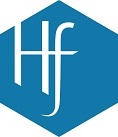

Bjørn is the co-founder of Hafnium Labs. He obtained his PhD from Technical University of Denmark on the development of an electrolyte CPA equation of state for which he received in 2015 the EFCE Excellence Award in Thermodynamics and Transport Properties. At DTU/CERE he also served as representative in CO-LaN and developed there a new software solution, ThermoSystem v4 for performing calculations with state of the art thermodynamic models, including PC-SAFT and CPA. Version 4 consists of a new CAPE-OPEN 1.0 and 1.1 compatible C# library and a robust core thermodynamic library (built in FORTRAN). Bjørn has served on the Thermodynamic SIG for a number of years.
The product presented at the CAPE-OPEN 2020 Annual Meeting is making use of the COBIA middleware which development is a current major project of CO-LaN. After hearing last year about Technische Universität Berlin making use of COBIA in their own development, this work is the second COBIA-based development that has been made independently of CO-LaN support through its consultancy services scheme. It shows that adopting COBIA makes sense to software developers.
Summary:
Q-props™ is a platform for improving the physical property models that are used inside process simulators. It makes use of all available experimental data and the best available predictive methods to obtain estimates and uncertainties for relevant thermodynamic, reaction and transport properties needed for process simulation.
Q-props™ makes use of CAPE-OPEN in two ways:
1) As a unit operation for checking/benchmarking properties of streams against Q-props™ predictions
2) As a thermodynamic engine replacing the built-in thermodynamics, with the option of exporting multiple packages representing different scenarios, such as lower CO2 volatility or higher liquid heat capacity following the Q-props uncertainty analysis
We used the new COBIA middle-layer to enable linking between our Q-props™ backend (written in the Julia language) and CAPE-OPEN compatible simulators. The COBIA middle-layer makes it significantly easier to develop high-performance C++-based CAPE-OPEN integrations, and the Julia language is a modern high-performance open-source programming language that enables rapid prototyping and development of e.g. new thermodynamic models and unit operations. We’ll share our experiences with developing and deploying the COBIA technology together with a Julia back-end and show examples of the Q-props implementation running inside a process simulation.
